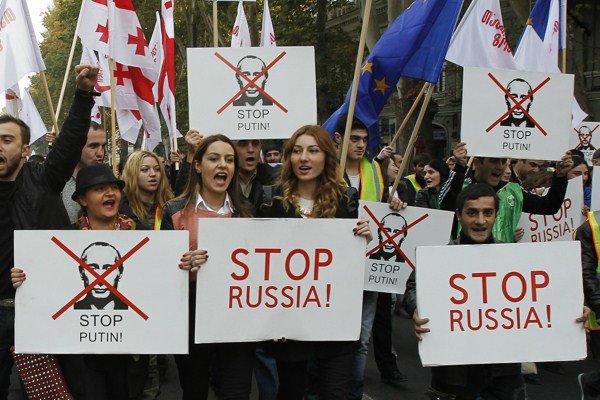A few hundred miles from the Moscow-backed offensives in eastern Ukraine, a quieter Russian expansionist project is taking shape in the breakaway Georgian regions of Abkhazia and South Ossetia. On Jan. 23, the Russian Duma ratified what it called a “Treaty on Alliance and Strategic Partnership” with Abkhazia, further extending and codifying Russian suzerainty over the balmy, subtropical republic on the Black Sea. In nearby South Ossetia, a rump highlands statelet of less than 40,000 people, its de facto president has promised an even more comprehensive treaty with Moscow likely to be signed later this month.
The reaction from Tbilisi has been, unsurprisingly, one of anger and protest. To most Georgians, the treaties represent a bold land grab, one not unlike Moscow’s annexation of Crimea early last year. To some extent, this view has unmistakable merit. Tellingly, the Russian leadership chose not to replicate the “recognition” model in Ukraine that it had pioneered in Abkhazia and South Ossetia. Instead, Crimea was annexed outright while the separatist statelets in the Donbas, as the rebellious region of eastern Ukraine is known, conformed to the more familiar Russian model of support without recognition, which Moscow has traditionally applied to varying degrees elsewhere, including the so-called frozen conflicts in Moldova’s Transnistria and Gagauzia regions, Azerbaijan’s Nagorno-Karabakh and, before the 2008 war, Abkhazia and South Ossetia.
But with the new treaties, Moscow’s “recognition” of the Georgian breakaway territories has come full circle. The Kremlin failed to anticipate the logistical and financial challenges of almost single-handedly buoying the trappings of these two region’s independence. So it has gradually taken to a policy of loudly asserting the territories’ autonomy internationally, while steadily assuming ever-increasing direct control over their de facto governments, internal security and economies.

